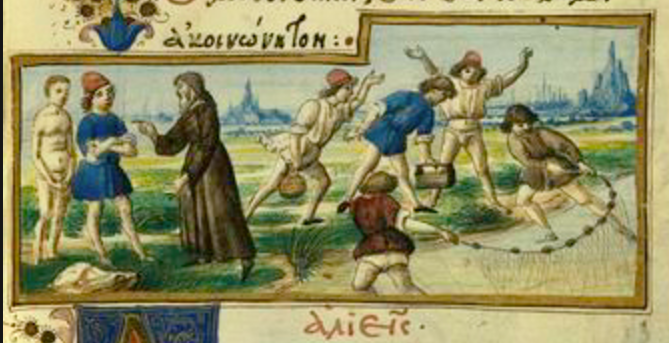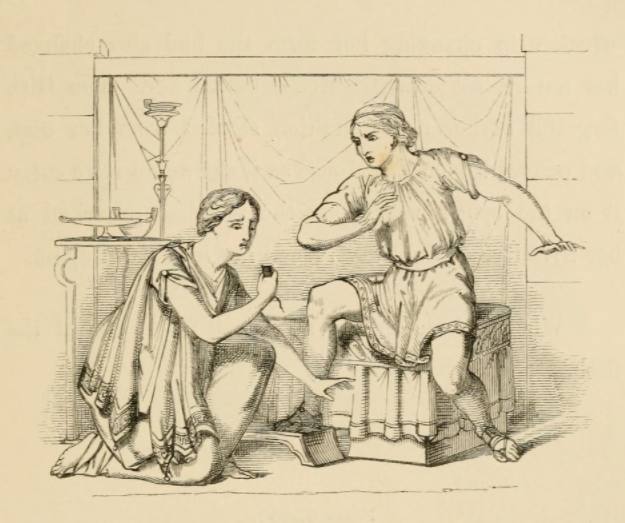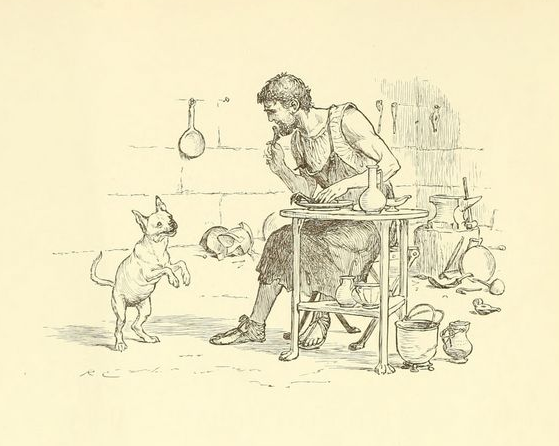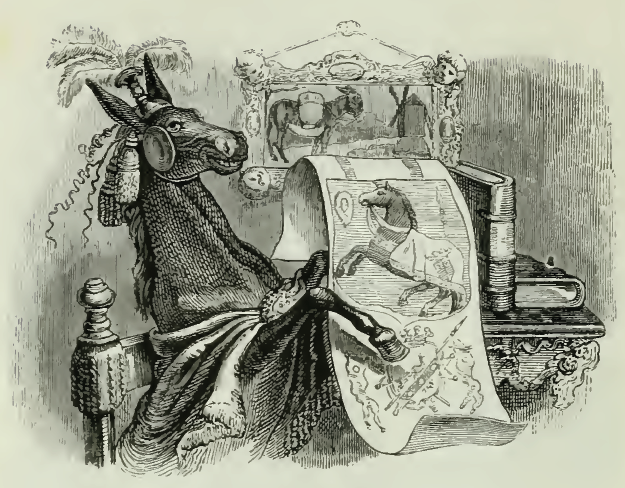186. Of the Fishermen
Certain fishermen drew their net out of the sea, which when they perceived to be heavy, they rejoiced greatly, thinking that there were many fishes, but as soon as they had dragged the net on the land, when they perceive few fishes indeed, but a vast stone to be in the net, they become sad. A certain one of them, now advanced in age, says prudently to his companions, "Be ye of quiet minds, for sorrow is the sister of gladness, for it behooveth us to foresee future mischances, and that any man may bear them more lightly to persuade himself that they will come to pass."
Moral. This fable signifies that he who remembereth human lot, is affected the least in adverse affairs.

187. Of a She-Cat Changed into a Woman
A certain cat, taken with the love of a certain beautiful young man, besought Venus, that she would change her into a woman. Venus, having pitied her, changed her into the shape of a woman, whom, when she was very beautiful, the lover led home. But when they sat together in the chamber, Venus, willing to try if, the face being changed, she had changed also her morals, placed a mouse in the middle; which, when she saw, having forgot her shape and love, she pursued the mouse that she might take her; upon which thing Venus, being angry, again changed her into the former shape of a cat.
Moral. The fable signifies that a man, although he may change his character, yet retains the same manners.

188. Of Two Enemies
Tow certain men having enmities between themselves sailed together in a ship. And when the one would not suffer the other to stand in the same place, one sat at the head, the other at the stern. But a tempest having arose, when the ship was in danger, he that sat at the prose asks the governor of the ship, what part of the ship would be sunk first, and when the pilot had said the stern, he said, "Death now is not so troublesome to me if I perceive my enemy to die first."
Moral. This fable reproves the enmities of men; when an enemy very often chooses to destroy himself that he may destroy his enemy.
189. Of a Dog and a Smith
A certain smith had a dog which, whilst he struck the iron, slept continually, but when he was eating, the dog immediately rose up and, without delay, gnawed those things which were thrown down under the table, as bones and other things of this kind, which thing the smith perceiving, he says to the dog, "So ho, wretch, I know not what I shall do to thee; who, whilst I strike the iron, sleepest continually and art possessed with sloth; again when I move my teeth, presently thou risest, and flatterest me with thy tail."
Moral. The fable signifies that the slothful and drowsy, who live out of the labours of others, are to be restrained with a heavy censure.

190. Of a Certain Mule
A certain mule, being made fat with too much barley, wantoned with too much fatness, saying with herself, "A horse was my father who was swiftest in the race, and I am like him in all things." A little after, it happened that it behooved the mule to run as much as she could, but when she ceased from running, she said, "Alas! Wretched me, who thought myself to be the offspring of a horse! But now I remember that my father was an ass."
Moral. The fable signifies that fools do not know themselves in prosperous things, but in adverse things very often they again know their errors.

No comments:
Post a Comment
Comments are limited to Google accounts. You can also email me at laurakgibbs@gmail.com or find me at Twitter, @OnlineCrsLady.